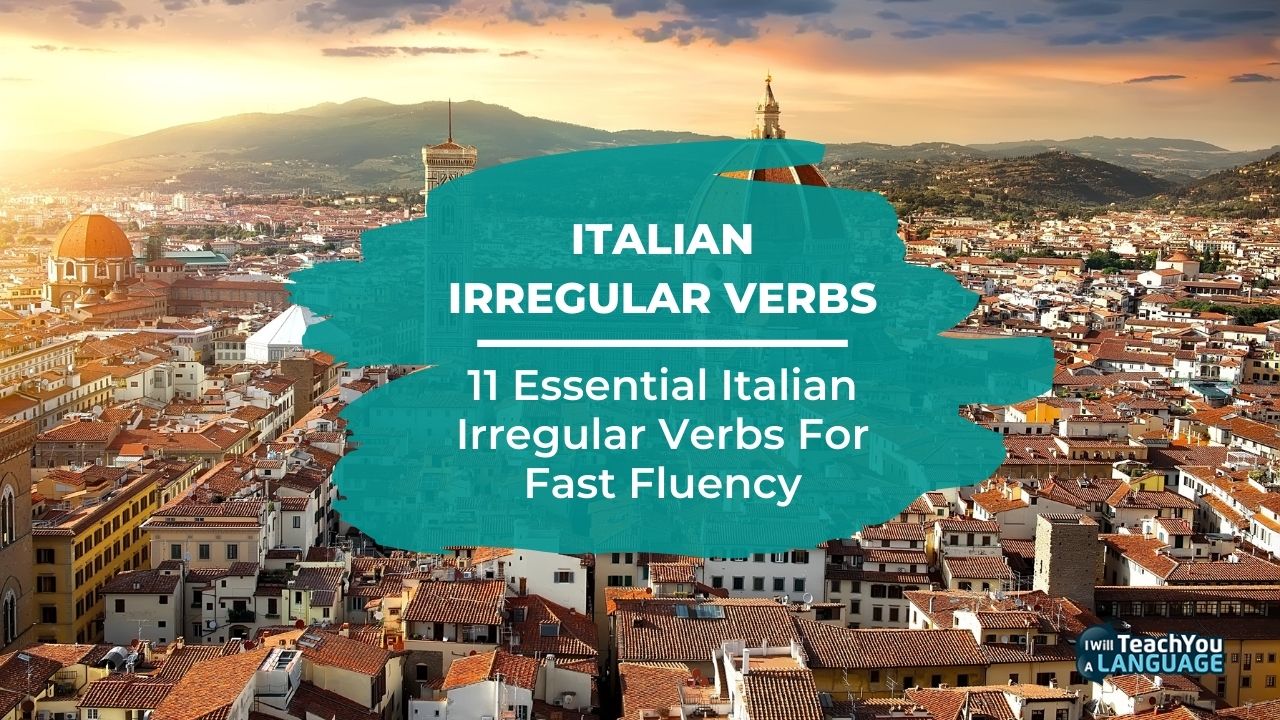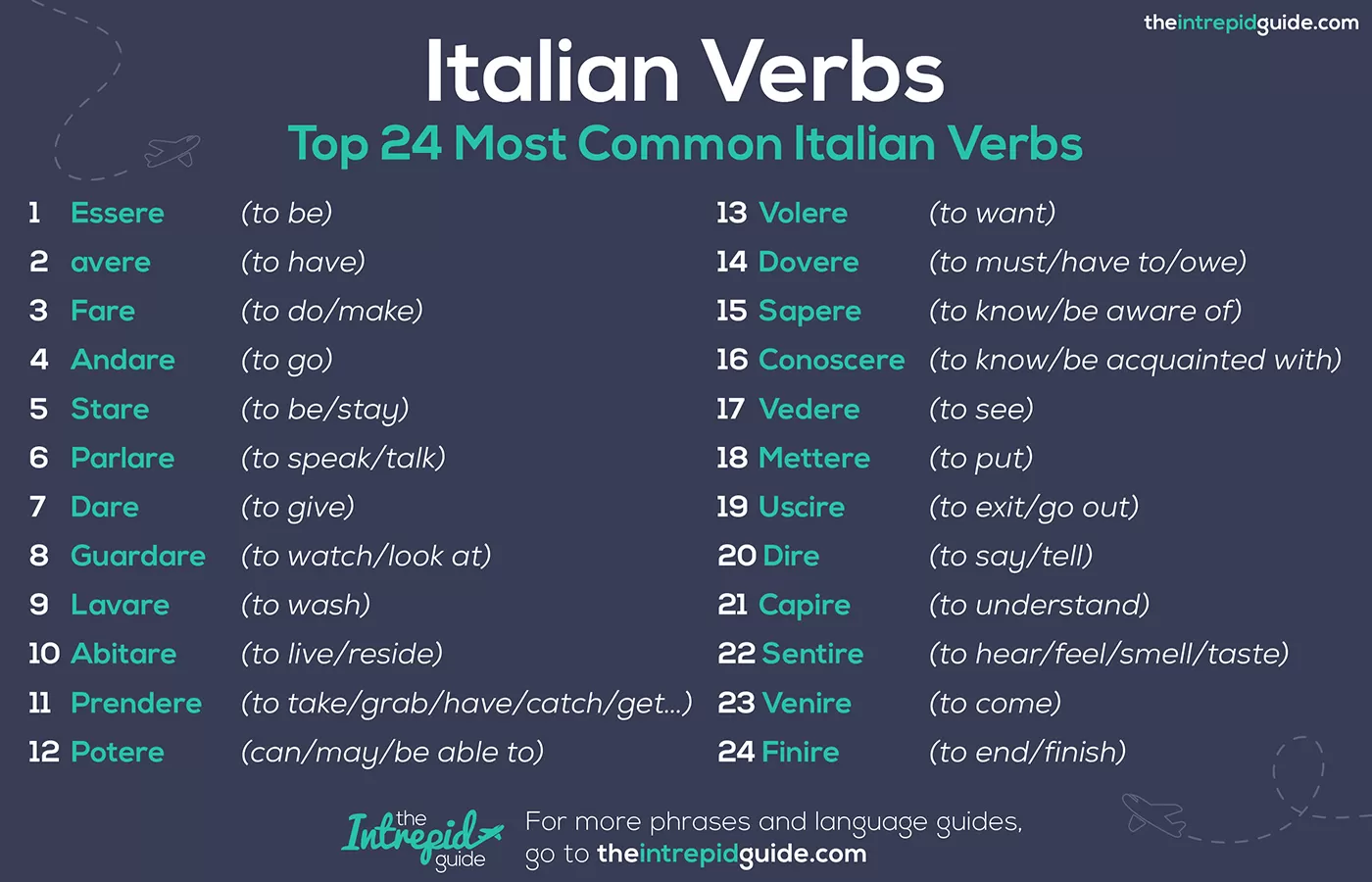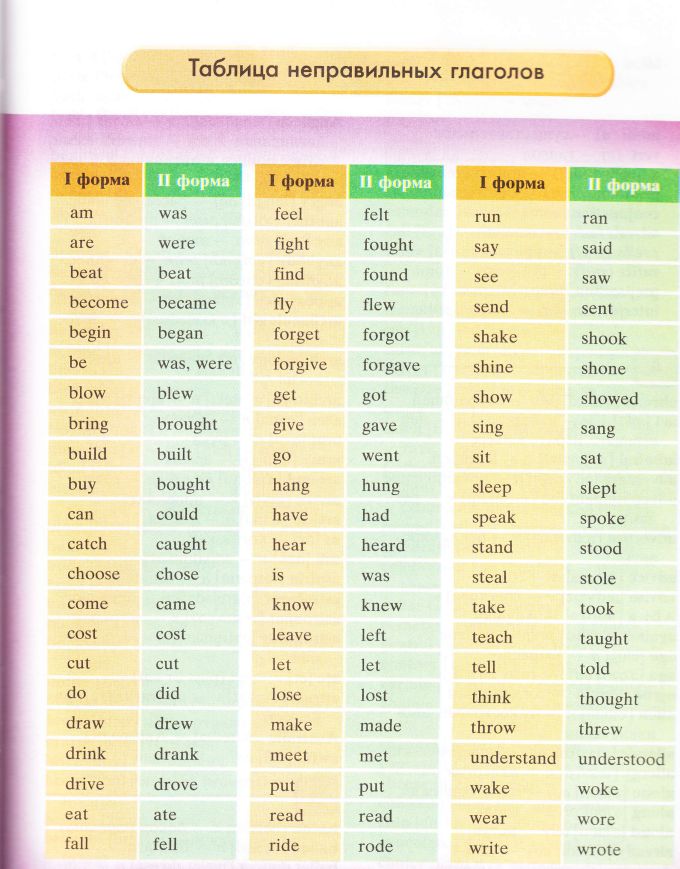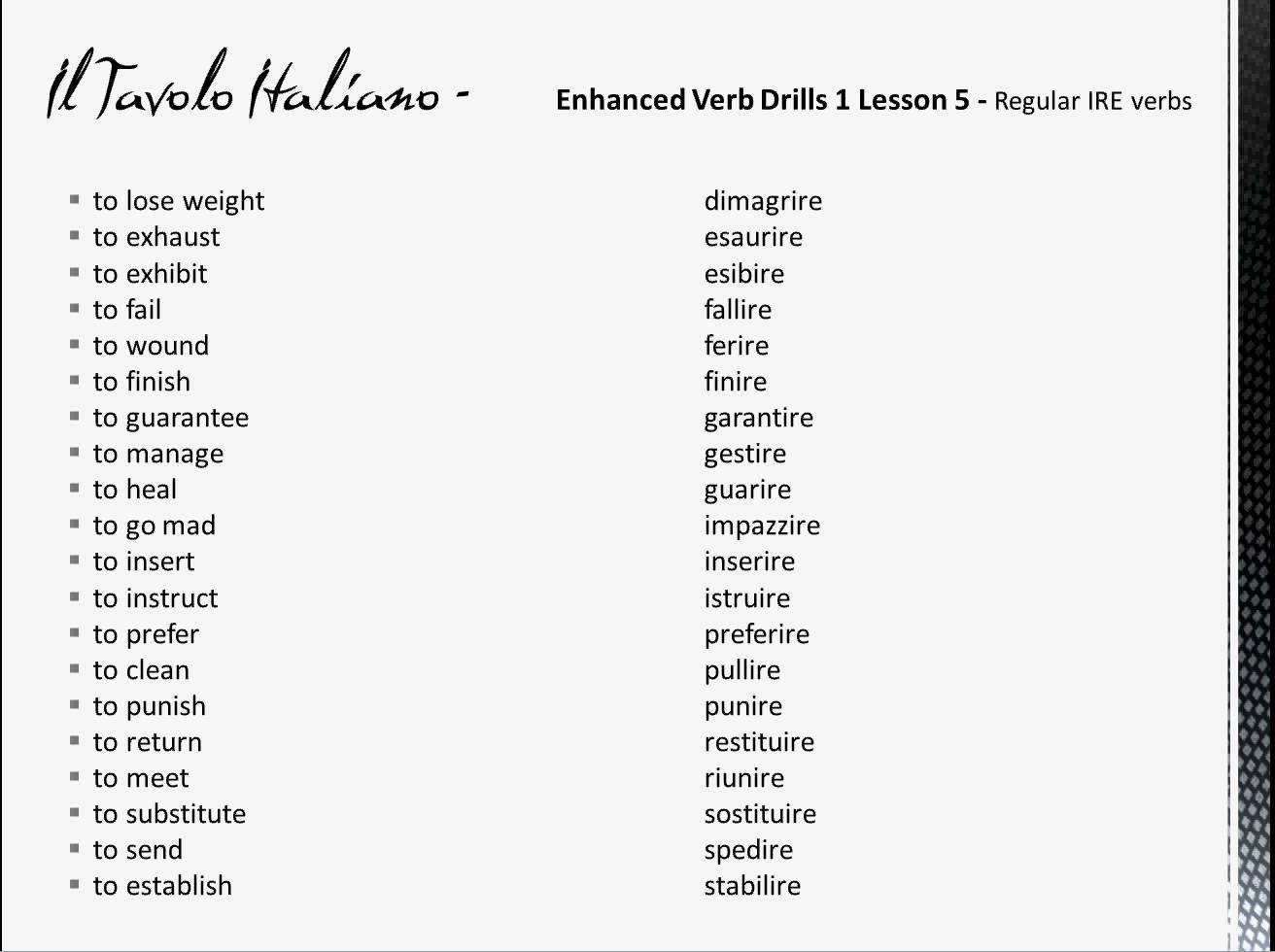
Italian Irregular Verbs I Will Teach You A Language
Understanding irregular verbs in Italian. Italian irregular verbs can be a bit tricky to handle. Unlike regular verbs that follow a predictable conjugation pattern, irregular verbs do not conform to any set rule. And while every language has its share of irregular verbs, Italian stands out as one of the languages with the highest number of them.

The Italian Verb Files Essere The Happy Maple Language Co
Some verbs have unpredictable patterns and break the rules: these are the Italian irregular verbs. Italian irregular verbs break all the rules You probably already know that the indicativo presente (present tense) conjugation for the pronoun io adds the ending -o to the root of the verb, or stem (see note for more info).

Image result for italian conjugations chart Italian verbs
Here you will find multiple-choice or completion exercises to practice the use of irregular verbs. You can also print the exercises to use them offline. Exercise 1. Exercise 2 PREMIUM. Exercise 3 PREMIUM. Question 1: Se volete, oggi (noi) sulla montagna più alta da qui. 1 saliscano. 2 salgiamo.

Top 24 Most Important Verbs in Italian (Plus PDF CheatSheet & Quiz) (2022)
Italian Verb POTERE (to be able to) Potere is an irregular verb. It is transitive or intransitive. It conjugates with avere or essere, depending on the main verb used. If potere is the main verb, it conjugates with the verb avere. Below you will find all its Indicative forms (present, present perfect, imperfect, past perfect, past definite.

Italian irregular verbs Exercise
Irregular Italian verbs. As the word suggests, regular verbs are those verbs which follow precise conjugation rules, whilst irregular verbs do not. They can be intimidating for learners of Italian, but after all, irregular verbs are present in every language and can be definitively learned.

20 Italian Irregular Verbs You Need to Learn Daily Italian Words
How many Italian irregular verbs in the present tense do you already know? With this verbs list you will learn 20 important Italian irregular verbs. 20 Italian irregular verbs in the present tense. LISTA VERBI PDF. Verbo. Traduzione. Presente. andare. to go. vado, vai, va, andiamo, andate, vanno. avere. to have.

Common Irregular Italian Verbs Images and Photos finder DaftSex HD
Those Irregular Verbs! How to Master Italian Verb Conjugations; 1. Give conjugated verbs needed context. 2. Write them on walls. Literally and seriously. 3. Say them out loud. Again and again. Common Issues with Italian Verb Conjugations; 1. The whole subject is covered too fast. 2. Conjugations are taught almost without context. 3. Mistakes.

Irregular Passato Prossimo Verbs A partial list Duolingo Italian
The most common irregular verbs in the present subjunctive include essere (to be), andare (to go), and avere (to have). Other irregular verbs such as dare (to give), fare (to do/make), and stare (to stay) follow the same pattern. Additionally, irregular verbs like bere (to drink), dire (to say), potere (can), rimanere (to remain), scegliere (to.

Irregular Italian verbs
Three Irregular First-Conjugation Verbs. There are only three irregular first-conjugation verbs (verbs ending in -are ): andare —to go. dare —to give. stare —to stay. FUN FACT: The verb " fare " is derived from facere, a Latin verb of the second conjugation, so it's considered an irregular second conjugation verb .

Italian Irregular Verbs I Will Teach You A Language
The conjugator allows you to conjugate any verb as long as it corresponds to an existing conjugation model. They may be imaginary verbs, they may contain spelling mistakes or be buzz verbs, not yet aggregated to our conjugation tables like "twittare", "taggare" or "svapare"! Conjugate verbs in English, French, Spanish, German, Italian, Hebrew.

List of common and basic Italian verbs ! Parlando Italiano
Italian irregular verbs - Modal verbs conjugation. Following, the most used Italian irregular verbs are modal verbs volere ( to want ), potere ( can ), dovere ( to have to / to need to / must) and sapere ( can / to be able to) which are mainly used paired with another main verb in the infinitive form. Here you have their conjugation:

267 best images about Teaching Italian on Pinterest Spanish, Language
Irregular -are Verbs.. Italian has only 4 irregular -are verbs (click for lessons): 1. andare: to go: 2. dare: to give: 3. fare: to do, to make: 4. stare: to stay, to be: Though these four verbs don't share a conjugation pattern, it's helpful to look at them side by side because there are many similarities.

11 Best Images of Subject Verb Find Worksheet Subject and Predicate
Italian Irregular Verbs: An Introduction. From day one, Italian learners encounter the irregular present tense. For example, the irregular verb stare is used in the common greeting " Ciao, come stai? " (= Hello, how are you?), or other irregular verbs such as essere (= to be) and avere (= to have) appear in many useful sentences for beginners.

100 Most Used Italian Verbs Poster Etsy
Verbs - and not only that - irregular verbs! The Italian language is infamous for having hundreds of irregular verbs. Some of them are irregular in the present tense, whereas others have irregular past participles. In this article, we'll be focusing only on Italian irregular verbs in the present tense…102 of them to be exact!This guide will:

Italian Irregular Verbs Italian language learning, Italian language
Today's blog will cover some of the most important irregular verbs in this tense. The first group of irregular verbs omits the vowel at the beginning of the future tense suffix, hence -erò,-erai etc. becomes -rò, -rai, etc. Here are some of the most common ones: andare (to go): andrò, andrai, andrà, andremo, andrete, andranno

italian conjugation chart Google Search Italian words, Learning
Irregular -Ere Verbs in Italian. Irregular verbs are those that do not follow the typical conjugation patterns of their respective types (infinitive stem + endings). There are three distinct irregularities: There are only three first conjugation verbs (verbs ending in -are) that are irregular— andare, dare, and stare.